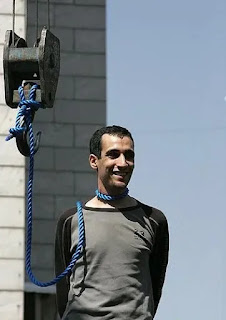The Scale of the Issue
Iran holds the unfortunate distinction of having one of the highest rates of executions in the world. While accurate statistics are difficult to obtain due to the secretive nature of the Iranian government, human rights organizations estimate that thousands of individuals have been executed in Iran over the past few decades for political reasons. These executions are often carried out with minimal transparency and due process, making it challenging to assess the legitimacy of the charges and the fairness of the trials.

Reasons for Political Executions
The Iranian government cites various reasons for political executions, which often include charges of espionage, terrorism, or acts against national security. However, many critics argue that these charges are often politically motivated and used as a tool to suppress dissent and eliminate opposition voices. High-profile cases, such as that of Iranian-British dual citizen Nazanin Zaghari-Ratcliffe, have attracted international attention and raised concerns about the lack of due process and transparency in Iran's judicial system.
International Reactions
Iran's political hangings and executions have drawn widespread condemnation from the international community. Human rights organizations, governments, and the United Nations have consistently called on Iran to cease its use of the death penalty in political cases and to improve its human rights record. Sanctions and diplomatic pressure have been applied to encourage Iran to adhere to international standards of justice and human rights.
The prevalence of political hangings and executions has had a chilling effect on Iranian society. Fear of reprisal has stifled free expression and led to self-censorship among journalists, activists, and ordinary citizens. Families of those executed for political reasons endure unimaginable suffering, often living in constant fear of being targeted themselves.
Moreover, the death penalty is known to be a poor deterrent against crime, and its excessive use raises concerns about the effectiveness of Iran's criminal justice system in addressing social issues and preventing future crimes.
Political hangings and executions in Iran remain a deeply troubling issue that continues to tarnish the country's international reputation and impact its citizens. While the Iranian government maintains that these actions are necessary for national security, the international community overwhelmingly condemns the use of the death penalty in political cases. It is essential for Iran to take steps toward greater transparency, adherence to international human rights standards, and the abolition of the death penalty for political reasons to improve its standing in the world and safeguard the rights and freedoms of its citizens. Only through meaningful reforms can Iran hope to address the concerns raised by its widespread use of political executions and pave the way for a more just and inclusive society.









No comments:
Post a Comment